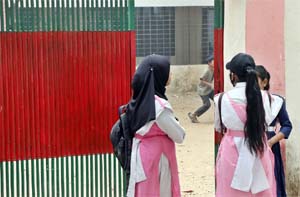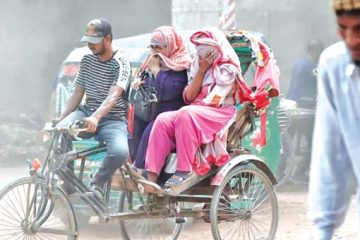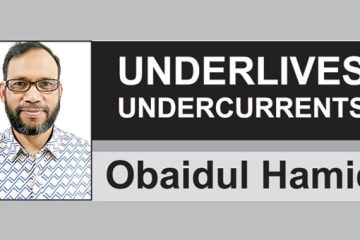Views
Mohammad Ehsanul Islam Khan
Education empowers and shapes nations. Increased enrollment and reading levels in Bangladesh have also enhanced education access. But the focus on quantity has overtaken the drive for quality education, leaving only a handful with access to top-notch universities.
According to Dr John Dewey, “Education is not preparation for life; education is life itself.” This remark captures the transformational nature of education. Quality education develops essential skills for both personal and societal growth.
Addressing the scarcity of trained teachers is crucial for providing quality education for all. Education policy expert Dr Linda Darling-Hammond once stated that the quality of an education system cannot exceed the quality of its teachers. To provide high-quality instruction, proper teacher recruitment and training programmes are essential.
Enhancing education quality also requires improving infrastructure. Malala Yousafzai, the youngest Nobel Prize laureate, stressed that inadequate classrooms, water and sanitary facilities, and lack of learning tools hinder education. A favourable learning environment that encourages students’ concentration and academic success requires adequate infrastructural development, including classrooms, furniture, electricity, and access to clean water.
Educational inequality must also be addressed. Dr Paulo Freire, a Brazilian educator and philosopher, says, “Education either functions as an instrument which is used to facilitate the integration of the younger generation into the logic of the present system and bring about conformity or it becomes the practice of freedom…” To close the gap between private and public schools, public-private partnerships must promote public education. NGOs, for-profit, and charitable partnerships can improve the state of education in poorer communities.
Additionally, teachers’ professional development is crucial. Dr Andy Hargreaves, a world-renowned education researcher, says, “High-quality professional learning enhances teacher effectiveness and student achievement.” Continuous training, mentorship, and competitive remuneration help attract and retain exceptional teachers, thus improving education.
Technology in the classroom can improve education and close the achievement gap. Education technology researcher Professor Sugata Mitra says, “Technology is just a tool. In terms of getting the kids working together and motivating them, the teacher is the most important.” Digital technologies and e-learning platforms can help students learn important skills and access resources, especially in places with a shortage of teachers.
The Bangladeshi school admission process has traditionally resembled a rat race. The new lottery-based admittance system raises problems about the right to education. It’s sad to see a system that renders our children powerless and leaves their destiny to chance. On the other hand, attending well-equipped schools in Bangladesh is too expensive. As a result, it might be financially challenging for students from working- or middle-class homes to afford a quality education. These pupils face a barrier to enrolment in schools with superior facilities and resources because of the affordability gap. Thus, educational opportunities are reduced, which hinders social mobility and keeps inequality in its cycle. To provide equitable access to high-quality education for all pupils in Bangladesh, efforts to solve this issue are essential.
Therefore, reevaluating the school system has become a necessity. If required, the education system must be amended, and not only in terms of admission procedures. As such, some key reforms are required.
Curriculum reform
The curriculum must be updated to meet society’s requirements and global norms. Practical and skill-based disciplines equip students for the modern workforce and help foster critical thinking, creativity, and problem-solving skills.
Teacher support
Teachers need constant professional growth. Training should include subject knowledge, innovative teaching methods, classroom management skills, and student-centred learning. Mentoring and peer support can boost teachers’ performance and job satisfaction.
Resource distribution
Distributing textbooks, learning materials, and technology evenly across schools is crucial. Addressing the gaps between well-equipped urban schools and resource-deficient rural schools demands strategic planning and funding.
Community engagement
Involving parents, local communities, and stakeholders in education encourages ownership and accountability. Dialogue and collaboration platforms can foster innovation, overall school improvement, and inclusive education.
Strengthening school infrastructure
Building and renovating school buildings, libraries, labs, and other amenities makes for a good learning environment. Safe and accessible schools also increase student involvement and improve learning.
Leveraging technology
Technology in education can increase access to quality learning resources, especially in rural and underprivileged areas. Internet access, updated devices, and e-learning platforms can help students gain digital literacy.
Monitoring and evaluation
Accountability and continuous improvement require the monitoring of education quality and evaluation systems. Standardised tests, school inspections, and feedback mechanisms can assist with improving education and ensure its efficacy.
Collaboration and partnerships
International organisations, NGOs, and private sector companies can provide expertise, resources, and new solutions to improve education. Public-private collaborations can boost infrastructure, teacher training programmes, and technological integration.
The government, legislators, educators, parents, and society must commit long-term to quality education for all. Bangladesh can construct an education system that develops every child’s potential and gives them the skills to succeed in a changing world by prioritising access to quality education. Nelson Mandela had said, “Education is the most powerful weapon which you can use to change the world.”
Bangladesh can unlock its people’s potential and create a thriving, inclusive future by providing quality education for all.
Mohammad Ehsanul Islam Khan is a teacher, researcher, poet and the president of Hello-Teen, a government-approved non-profit organisation in Bangladesh.








